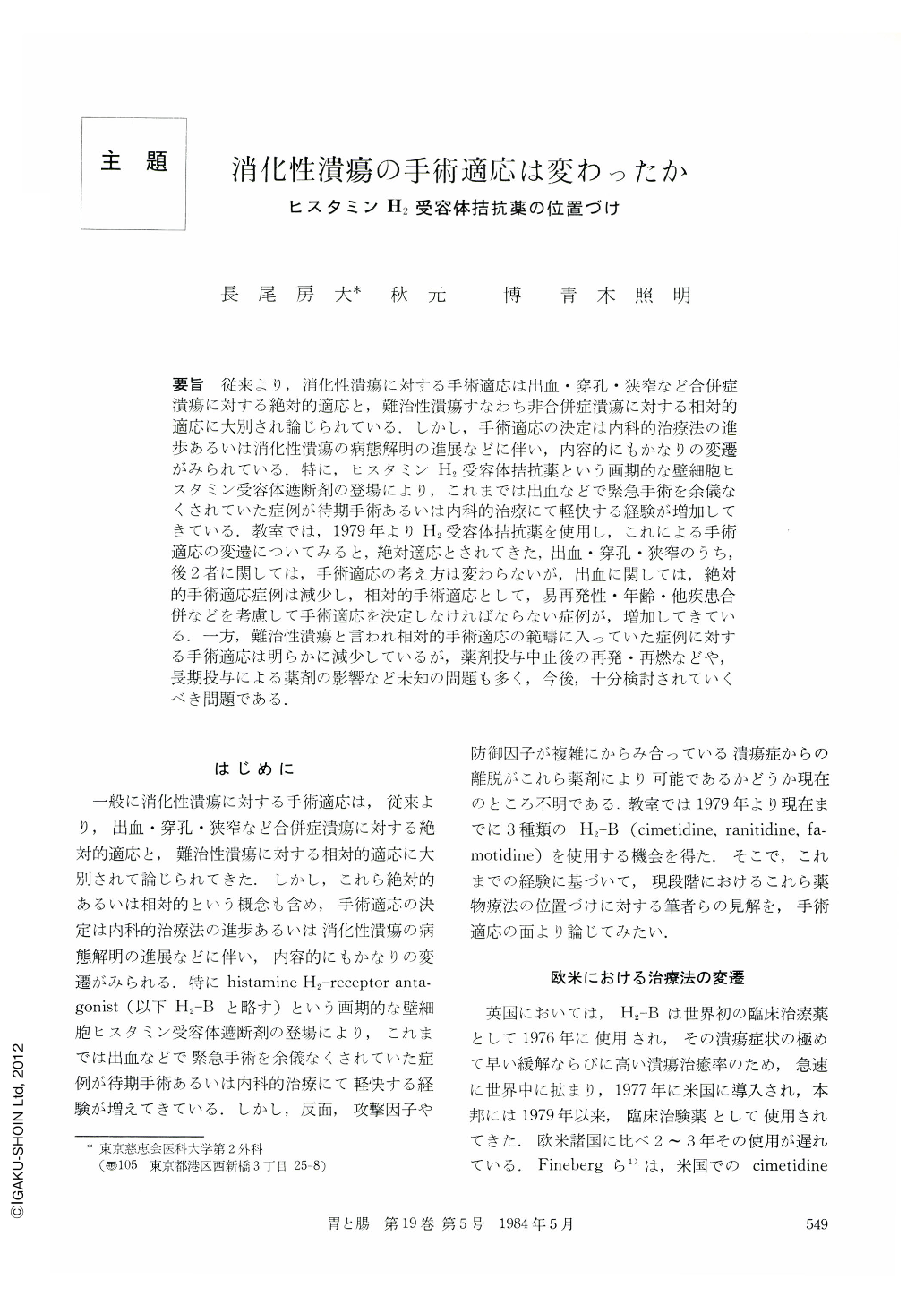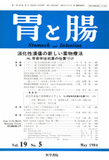Japanese
English
- 有料閲覧
- Abstract 文献概要
- 1ページ目 Look Inside
要旨 従来より,消化性潰瘍に対する手術適応は出血・穿孔・狭窄など合併症潰瘍に対する絶対的適応と,難治性潰瘍すなわち非合併症潰瘍に対する相対的適応に大別され論じられている.しかし,手術適応の決定は内科的治療法の進歩あるいは消化性潰瘍の病態解明の進展などに伴い,内容的にもかなりの変遷がみられている.特に,ヒスタミンH2受容体拮抗薬という画期的な壁細胞ヒスタミン受容体遮断剤の登場により,これまでは出血などで緊急手術を余儀なくされていた症例が待期手術あるいは内科的治療にて軽快する経験が増加してきている.教室では,1979年よりH2受容体拮抗薬を使用し,これによる手術適応の変遷についてみると,絶対適応とされてきた,出血・穿孔・狭窄のうち,後2者に関しては,手術適応の考え方は変わらないが,出血に関しては,絶対的手術適応症例は減少し,相対的手術適応として,易再発性・年齢・他疾患合併などを考慮して手術適応を決定しなければならない症例が,増加してきている.一方,難治性潰瘍と言われ相対的手術適応の範疇に入っていた症例に対する手術適応は明らかに減少しているが,薬剤投与中止後の再発・再燃などや,長期投与による薬剤の影響など未知の問題も多く,今後,十分検討されていくべき問題である.
The operative indication for peptic ulcer disease has been divided into two categories. One is absolute indication as bleeding, stenosis and ulcer perforation, the other one is relative indication as intractable ulcer. The treatments for peptic ulcer are changing depending on the development of new medical therapy or based on new findings in gastric physiology. Since H2-receptor antagonist was introduced for the treatment of peptic ulcer, a significant decrease in surgical cases has been experienced within the recent couple of years. Gradual reduction of surgery for peptic ulcer disease has been seen for last three years. Especially relative indication was markedly dropped (Fig. 1). Otherwise, absolute indication including bleeding, stenosis and ulcer perforation shows different phenomenon. H2-receptor antagonist has some beneficial effects for bleeding cases (Table 1). But there are little effects upon the patient who has exposed arteries in ulcer base and/or who has other severe organ failure (Table 2). In conclusion, H2 receptor antagonist has some beneficial effects on-so called intractable or bleeding ulcer patients avoiding emergency surgery. However, it will be an important future problem to be solved, how long the patients with recurrent ulcer disease could be on H2-receptor antagonists therapy.

Copyright © 1984, Igaku-Shoin Ltd. All rights reserved.


